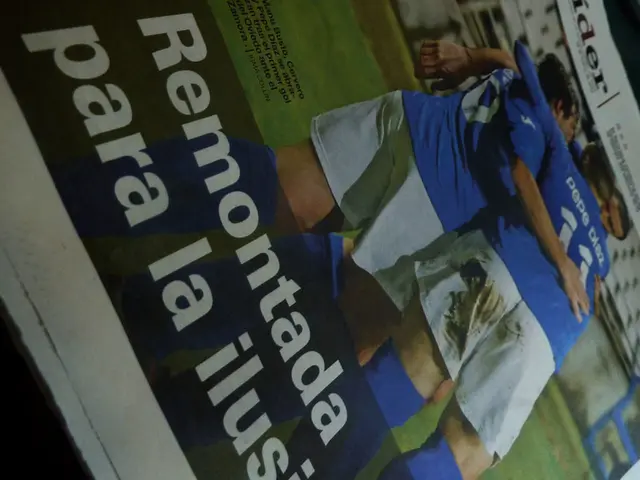Living the high-stakes lifestyle: The allure of sports betting and its hidden dangers
Scientific American Highlights Research on Gambling Addiction, Focusing on the 'Dark Flow' of Dopamine Rush
The addictive potential of sports betting, particularly with the advent of parlays and in-game betting, has come under scrutiny from experts and researchers. A recently published study in a renowned US scientific journal sheds light on the compulsive behavior associated with sports gambling and the risks it poses.
Uncovering the 'Dark Flow'
The study, conducted by Swansea University in Wales, introduces the concept of 'dark flow.' This state, often experienced by compulsive gamblers, increases dopamine levels in the brain, driving the individual to persistently chase the big win. The term 'dark flow' captures the mesmerizing allure of gambling that can ultimately lead to financial devastation and other negative consequences.
A psychologist studying gambling at Swansea University, Jamie Torrance, explains that slot machines, which are the mainstay of casinos, are a primary culprit in perpetuating the 'dark flow' state. Torrance suggests that the frequent turnarounds linked to the thrill of potential wins condition people to continue playing the slots.
A slippery slope for sports betting
Torrance's research highlights potential trouble ahead for sports betting, particularly in relation to parlays and in-game betting. While sports betting may not be as harmful as gambling on a slot machine, its fast pace and the option to place bets more frequently could see it move in a more dangerous direction.
Furthermore, the US journal cites policy researcher Heather Wardle, who studies gambling at the University of Glasgow. Wardle warns that sportsbook apps can use personal data to create targeted offers, similar to how tobacco firms would have exploited consumer insights to market their products more effectively.
Apps designed to exploit
Wardle headed a commission on gambling's risks to public health whose findings were published late last year in The Lancet. The commission referred to 'dark patterns,' digital apps designed to exploit cognitive biases to convince users to act against their best interests.
Torrance agrees, stating that gambling firms have a wealth of knowledge about how the mind works and how to exploit that knowledge for profit. Lia Nower, head of the Center for Gambling Studies at New Jersey's Rutgers, questions the safety features touted by Joe Maloney of the American Gaming Association. Nower's study found that only a small percentage of young people (1% to 4%) in New Jersey use any of the safety features on sports betting apps.
push notifications as addictive as free drinks
Torrance likens push notifications offering limited-time free bets to an offer of a free drink to an alcoholic. Given the difficulty it presents for a drinker to resist, it would be highly challenging for a gambler to say no to such an offer.
In conclusion, sports betting, with its continuously evolving platforms and features, carries significant risks for both casual viewers and seasoned bettors. Understanding the cognitive biases exploited by app designers can help educate users and potentially curb harmful gambling behaviors.
- The study on sports gambling, published in a prestigious US scientific journal, reveals a link between sports betting and compulsive behavior, coining the term 'dark flow' to describe the state that can lead to financial ruin and other negative consequences.
- Jamie Torrance, a psychologist studying gambling at Swansea University, suggests that the fast pace and frequent betting options in sports betting could make it more dangerous than traditional gambling forms like slot machines.
- Heather Wardle, a policy researcher who studies gambling at the University of Glasgow, warns that sportsbook apps can use personal data to create targeted offers, similar to how tobacco firms would have used consumer insights for marketing strategies.
- Torrance compares push notifications offering limited-time free bets on sports betting apps to an offer of a free drink to an alcoholic, stressing that it would be challenging for a gambler to resist such offers.
- Lia Nower, head of the Center for Gambling Studies at New Jersey's Rutgers, raised concerns about safety features on sports betting apps, claiming that only a small percentage of young people actually use them.
- In light of the risks associated with sports betting and the cognitive biases exploited by app designers, understanding these tactics can aid in educating users and minimizing harmful gambling behaviors.







